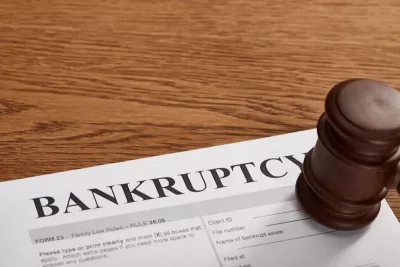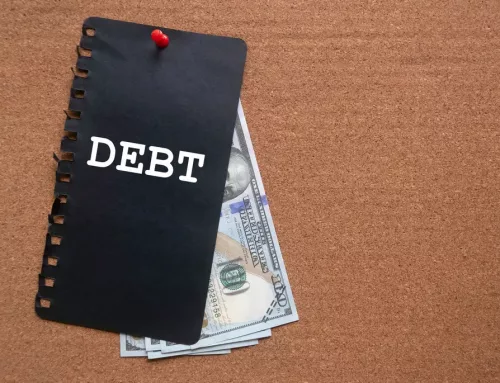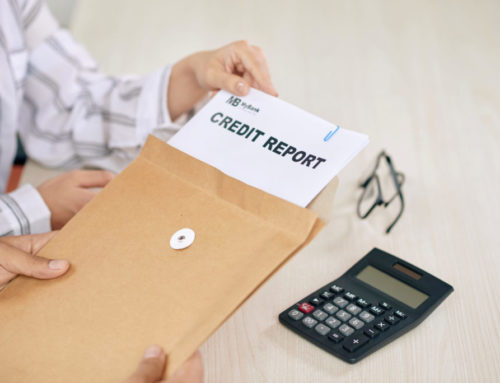Different bankruptcy chapters apply to different circumstances, each with specific bankruptcy rules that must be taken into account. If you wish to repay your debts without surrendering your assets, a Chapter 13 bankruptcy filing might be the best option for you.
The idea behind reorganization bankruptcy is fairly clear and simple. However, before filing for bankruptcy, it is best to seek legal help from a trusted Jackson bankruptcy lawyer. Bankruptcy filings can open a lot of new doors, but they may not be for everyone.
Why Bankrupt Individuals File Bankruptcy Cases
 Bankruptcy proceedings are useful for debtors who are no longer capable of making payments to their creditors. Once you file a bankruptcy petition, an automatic stay that prohibits collection activities takes effect. Your creditors will be notified of the bankruptcy filing and the bankruptcy stay. This can help stop wage garnishment and foreclosure. Additionally, the debtor shall be protected from a debt collector and creditor harassment. Creditors, however, may be able to file a motion to lift the stay or make use of certain exceptions stated in relevant bankruptcy laws.
Bankruptcy proceedings are useful for debtors who are no longer capable of making payments to their creditors. Once you file a bankruptcy petition, an automatic stay that prohibits collection activities takes effect. Your creditors will be notified of the bankruptcy filing and the bankruptcy stay. This can help stop wage garnishment and foreclosure. Additionally, the debtor shall be protected from a debt collector and creditor harassment. Creditors, however, may be able to file a motion to lift the stay or make use of certain exceptions stated in relevant bankruptcy laws.
Filing a bankruptcy petition is also helpful for those who wish to obtain a bankruptcy discharge, where qualifying debts are eliminated. Filing a petition in bankruptcy, however, is not an option that is open to all. One must first take the bankruptcy means test, which looks into your monthly income, living expenses, and the types of debts you owe.
Learning how to file a bankruptcy petition is often more difficult than it seems. Consult with a reputable Jackson bankruptcy attorney to know more about the twists and turns of filing bankruptcy under Chapter 13.
Chapter 13 Can Be Denied if the Bankruptcy Process is Not Followed
Under relevant bankruptcy law, a debtor should enroll and successfully finish a credit counseling course from an institution approved by the United States Trustee’s Office. Otherwise, it is likely the bankruptcy case will not push through.
Filers are expected to prepare the petition in bankruptcy and the accompanying debt repayment plan. The paperwork and supporting documents will be filed by you and your legal representative, together with your most recent tax return and proof that you have filed your tax return for the past four years. A proposal that does not meet the requirements under the bankruptcy code will likely be a hindrance to a successful filing.
The bankruptcy court will appoint a trustee in bankruptcy filings, who shall review the repayment plan for legal compliance. The bankruptcy trustee is also tasked to arrange the Meeting of Creditors, which you are required to attend. While creditors rarely attend, they have the right to object and ask questions regarding your finances and payment plan during the meeting. Failure to comply with this requirement will also negatively impact your filing.
Even though your payment plan has not been confirmed yet, it is crucial to start making payments a month after declaring bankruptcy. A debtor is expected to make regular payments until the would-be-approved repayment plan is completed. In some instances, debtors are even asked to file such records as income and expense reports. Paying close attention to the payment plan’s specifications and deadlines is also crucial if you want your filing to succeed.
Filers are required to attend a specific court hearing that is commonly known as the confirmation hearing. Objections from creditors regarding the proposed repayment plan will be resolved in this court hearing. If everything goes as intended, the bankruptcy court will approve your repayment plan. Failure to attend, however, can affect not only your current filing but also future ones.
The credit counseling course required before you can file for bankruptcy is complemented by a course in personal financial management. Before the case is closed, the filer is expected to finish a debtor education course. Otherwise, the bankruptcy proceedings may not commence as planned.
Making the Most Out of Your Declaration of Bankruptcy
If you follow all of the rules and take all the necessary steps, your bankruptcy case will be dismissed after discharged debts are finalized by the court. Most of the time, the discharge is issued after the completion of the payment period. By this time, any existing balance of certain qualifying debts will already be wiped out by the bankruptcy discharge.
Due to a variety of possible reasons, Chapter 13 can be denied. To avoid such a denial, it is highly advisable to consult with the best bankruptcy lawyers in your area. Get in touch with a trusted bankruptcy law firm that can help you rebuild your financial future and have a fresh start with your finances.
Seek legal help and assistance from committed Jackson bankruptcy attorneys. Call us at the Rollins Law Firm for a consultation.








Connect with Us